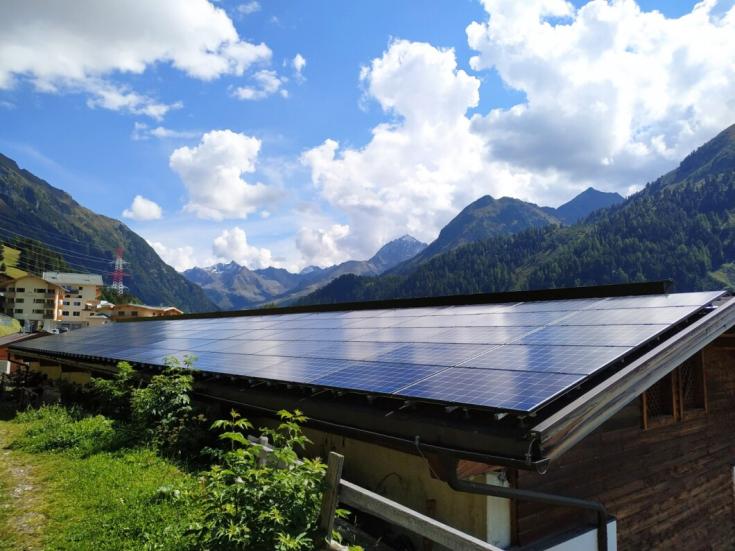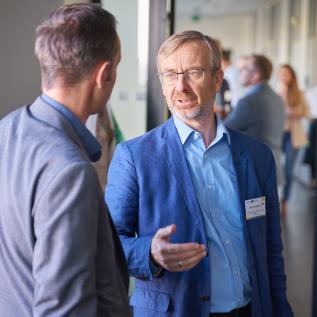How to create and run an energy One-Stop-Shop?

On 22-23 January 2025, the Policy Learning Platform held an onsite peer review for the Energy Centre of the Ústí Region (ECUK), which wants to become the first energy One-Stop-Shop of the Czech Republic.
Alongside Katharina Krell and Magda Michalikova, from the Policy Learning Platform, excellent peers participated in the peer review:
- Andoni Hidalgo, Opengela, Spain
- Benjamin Wilkin, Energie Commune, Brussels, Belgium
- David Cis, De Energiecentrale, City of Ghent, Belgium
- Ina Karova, Energy Agency of Plovdiv, Bulgaria
- Nicholas Stancioff, Ekubirojs, Riga, Latvia
The peers shared their experiences and provided tailored policy recommendations for ways of tackling our beneficiary’s policy challenges.
Energy One-Stop Shops (OSS) are support structures offering a comprehensive range of services. They often evolve from existing energy competence centers, such as energy agencies, that seek to expand and complete their service offerings. These OSS aim to support all stages of processes like energy renovation or the emergence, development, and ongoing management of new energy communities.
Several recommendations and key outcomes were established as a result of the discussions and presentations of the peers, some of them are listed below.
Key recommendations
- Successful energy OSS need political will and support. They should be aligned with a comprehensive territorial strategy, e.g. a regional vision for 2050 or the local or multi-municipality SECAP.
- Vice versa, a well-operating OSS will support the regional development strategy, as OSS advice and guidance triggers regional investment in renovation works and creates local jobs.
- The renovation journey is messy, complex, involves many players with differing interest. It is the mission of the OSS to make this journey simple(r).
- The OSS services should cover all stages of the renovation process and liaise with all relevant stakeholder groups. The renovation process should be seen from the user perspective and address user needs
- Consultancy services of differing technical complexity must be provided. Legal / regulatory advice and guidance on administrative issues. Liaison with a group of trusted renovation service providers, a network of companies. Financing advice, potentially financial instruments, support homeowners with subsidy applications.
The independence of OSS from commercial players is key to public trust. The role of the OSS is that of a non-institutional partner of confidence that acts as a neutral broker between the political actors (municipalities, regional government). OSS should act as a guide, final decisions, e.g. about which company to contract, remains with the owners.
- An OSS is a cooperation project bringing together all players along the building renovation value chain and in a territory (territorial and sectoral)
- The beneficiary target groups for a OSS should be well-defined upfront, depending on the strategic focus. The highest impact can be achieved when targeting multi-famility apartment buildings and districts. One family houses with a single owner are the easiest target group.
- Main partners are renovation companies, and the OSS should build a network of service providers for all stages of the renovation journey. The OSS should also liaise with financial bodies to be able to recommend a financing solution for the renovation works.
- Other cooperation partners include public administrations at all levels, associations, utilities, civil society organisations, academia and EU-wide networks for exchange and capacity building, such as EU Peers.
- The OSS should develop a strong brand, vision & mission and clear targeted messages to the different target groups. It must invest in raising interest in home renovation, e.g. through fairs, meetings, videos, case studies, testimonials.
- The call to action should be specific, but it should be people centric: Not putting energy or environmental benefits first, but stressing the additional health, safety & comfort for occupants and the increased asset value.
The host’s policy challenges, and all the peer suggestions will be available shortly in the follow-up report.

Debating and confronting ideas was a pleasure; and listening to our peers inspired me to modify some of our own activities. So, thank you to our Interreg Team and their "many-voice, one-brain" technique!

I came to believe that this is an extremely beneficial format for both the hosting organization and the mentors. And I am so happy that I was part of it. It was pleasure being with you in Usti nad Labem and in this community of like-minded practitioners. It was great talking to people who hear your successes and challenges and can give their honest and open perspective.

Peer review publication
Find more information on the methodology and experiences of previous beneficiaries in our publication.

Apply for a peer review
Start your peer review application process today and find solutions to your policy challenge with our expert and peers!


